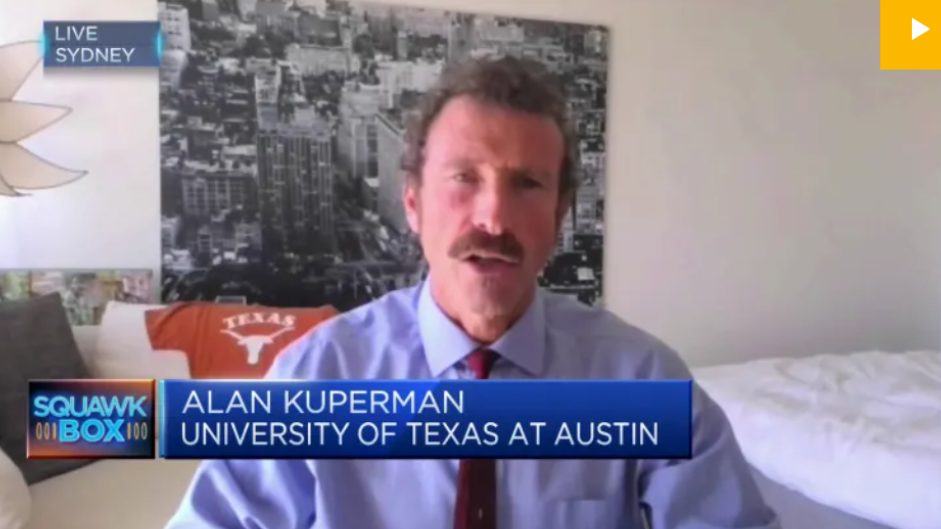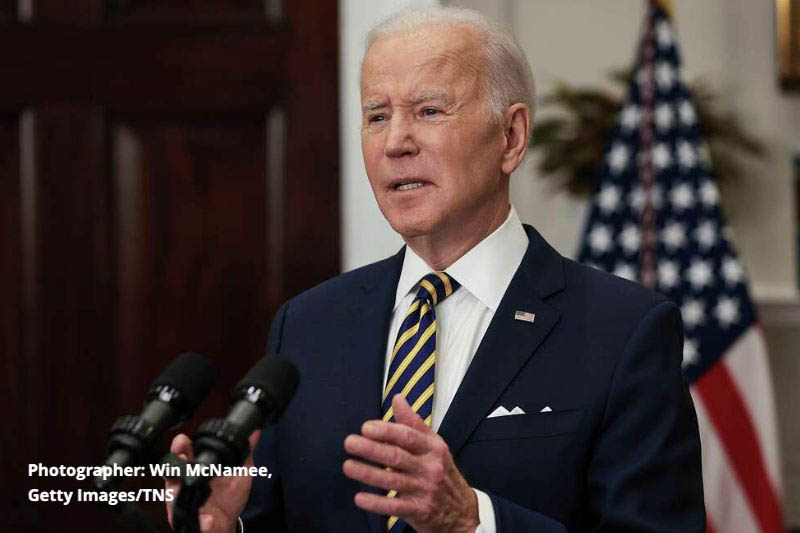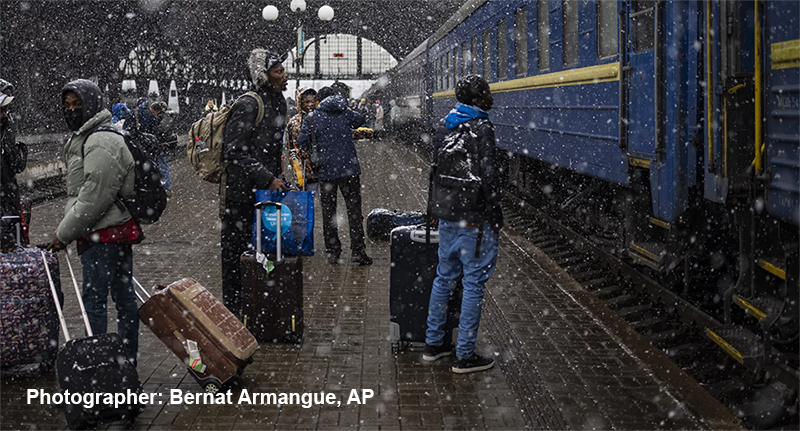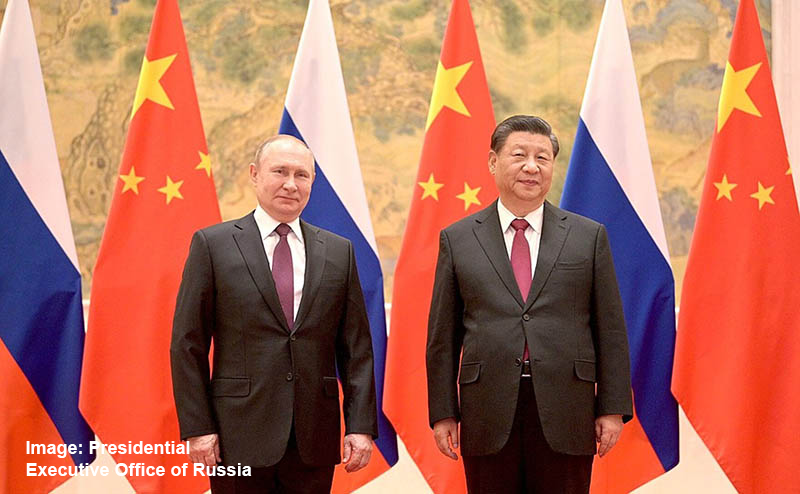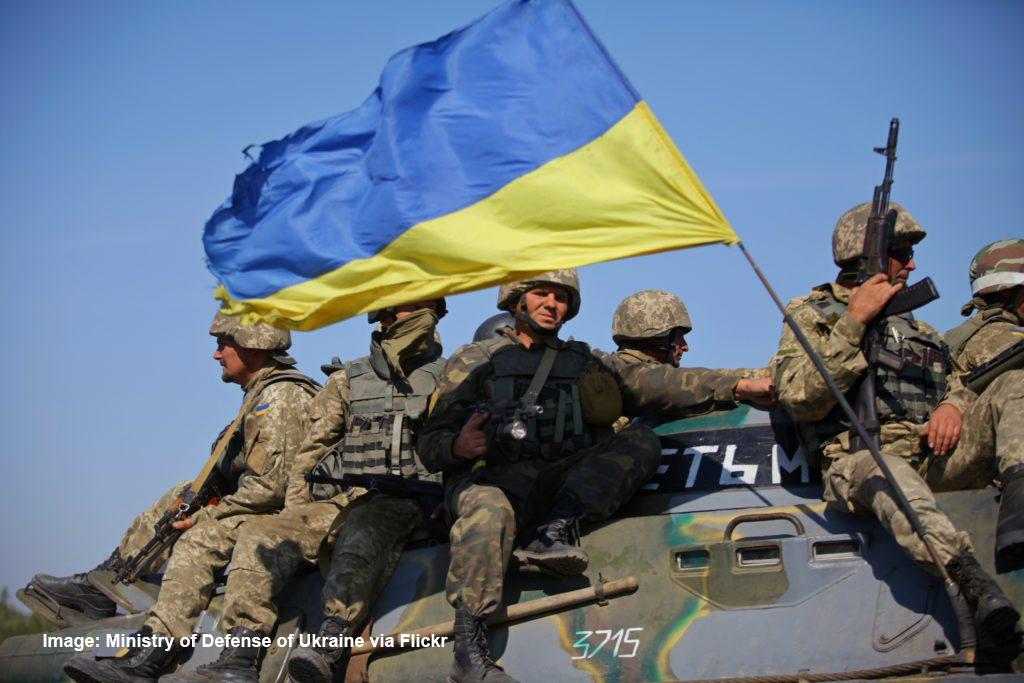A roundup of commentary and analysis on the war in Ukraine from LBJ School faculty Raj Patel, Alan Kuperman, Will Inboden and Sheena Greitens, along with an expert panel on developments on the ground.
1. Global food prices are soaring
Experts say global food prices could jump by 22 percent this year.
Why? Russia is the world's largest wheat and fertilizer exporter. Ukraine is the world's fifth largest wheat exporter. The two countries together provide nearly 28 percent of the world's wheat. The two countries are also major exporters of corn and barley.
Hunger is a result of the inability to afford food — high prices mean more malnutrition, said Raj Patel, research professor at the LBJ School.
"Globally the price of wheat is going up. The shocks of the Ukraine invasion get propagated everywhere, and that's how you will see an increase in hunger as a result of this."
Bottom line: The United Nations projects the number of people suffering undernutrition to hit 830 million this year due to price increases in global wheat markets.
Go deeper: Watch more on Democracy Now!
2. Nuclear weapons haven't been ruled out
The Ukraine conflict is a war "we cannot win militarily" against Russia, said Alan Kuperman, founding coordinator of UT's Nuclear Proliferation Prevention Project and a professor at the LBJ School.
Why? Kuperman says this is because Russian President Vladimir Putin would be willing to exercise his "escalatory trump card" of nuclear weapons, while the West would not.
"I think he's been fairly clear in saying that he has no problem with escalating to nuclear, so this is a war we cannot win militarily against him because he would escalate to nuclear, and we have no desire to escalate to nuclear."
A bid to deescalate: Kuperman says there can be compromise, but diplomatic measures may include Ukraine agreeing to not join NATO, import weapons from NATO that could threaten Russia, and more.
Go deeper: Watch Kuperman's interview on CNBC's "Squawk Box"
MORE: Kuperman argues in the New York Daily News that a better way exists to counter Russian President Vladimir Putin and protect Ukrainian civilians.
"Ukrainians understandably want to fight rather concede to an invader, and that is their right even if it increases Russia's violence and demands. But NATO should consider that supplying weapons only fuels such escalation, which harms Ukrainian civilians and could provoke Putin in terrifying ways. A wiser course would instead focus on bolstering economic sanctions, which can punish and eventually impede Putin's aggression — without decimating Ukraine or risking nuclear war."
3. Biden should follow Reagan's example and pivot on energy security
While the Biden administration deserves much credit for its diplomatic efforts and military assistance, its response on energy has to be stronger, writes Will Inboden, executive director of the Clements Center for National Security and an associate professor at the LBJ School.
Why? In an op-ed co-written with Kay Bailey Hutchison, former U.S. permanent representative to NATO and U.S. senator from Texas, they argue that the United States has two immediate energy goals in the Ukraine war: keep our European allies fueled with stable energy supplies, and starve the Kremlin of oil and gas revenues.
"America is well-positioned to increase fossil fuel production and thus offset Europe's diminished Russian supplies. Current energy policies have limited America's production levels and this emergency requires a pivot."
The play: Inboden and Hutchison suggest the president and Congress should reopen drilling on federal lands, reopen the building of the Keystone XL pipeline to bring in oil from Canada, and reverse new regulatory Federal Energy Regulation Commission processes on natural gas production and shipment. U.S. policy should also encourage clean energy production to relieve the increase in American fuel costs and increase exports of our resources to European allies, they write.
Go deeper: Read more at the Houston Chronicle
MORE: In The Hill, Inboden and Adam Klein write that the CHIPS Act, which authorizes $52 billion for semiconductor chip production and research domestically, needs to be judged as defense policy, not industrial policy.
"The United States faces a forbidding global landscape. Russia's rebuilt war machine assaults Ukraine, while Communist China looms over our Asian allies. China's military expansion threatens our security, and its predatory trade practices and intellectual property theft hurt our economy. Amidst these challenges, one technology — semiconductors — is critical to keeping America's economic and defense edge.
American leaders long have understood that chips are pivotal for our national security. Indeed, securing semiconductor supply chains undergirded President Reagan's successful pushback against Soviet power in the 1980s."
4. Ukraine coverage displays racial bias, overlooks people of color
The sum of the news coverage of the war in Ukraine evokes patterns of racial bias that prioritize the lives, well-being and futures of White victims of war — too often at the expense of Black lives, writes Professor Peniel Joseph, LBJ's associate dean for Justice, Equity, Diversity and Inclusion and founding director, of the Center for the Study of Race and Democracy.
Why? Much of the Ukraine coverage has omitted the experiences of students, immigrants and others from Africa (or who are of African descent), India and Pakistan who have been trying to flee report being delayed, sent to the back of the line or outright rejected, primarily because of their skin color. Many commentators have noted their shock in witnessing European casualties, using charged language expressing sorrow that such chaos is so out of place in the "relatively civilized, relatively European" nation.
"As events have unfolded, the media has rightly presented the conflict as a human rights catastrophe that inspires a unified global solidarity. But many Black and brown activists and observers, myself included, are also expressing this solidarity — while critiquing the apparent double standard and racial bias evident in both media coverage of and social media response to images of largely White Ukrainians engaged in violent resistance against Russian forces.
"...The global crisis of racism, inequity and anti-immigrant xenophobia might seem secondary to the violence of the conflict in Ukraine but in truth, they are inextricable concerns. Russia's assault on Ukraine's sovereignty reflects the growing strength of autocratic leaders, such as Brazil's Jair Bolsonaro. Similarly, the treatment of African refugees in Ukraine in the context of war illustrates the xenophobia and racial intolerance that has fueled Brexit and aspects of the anti-globalization and nationalist movements that have flourished over the past decade."
Go deeper: Read Joseph's op-ed at CNN
5. Russia's invasion of Ukraine forces China to walk a tightrope
U.S. officials report that Russia is turning to China for financial and military assistance, as sanctions imposed by the U.S. and its allies continue to hit Russia's economy, but it poses risks for China with regards to Taiwan and the rest of the world.
Why? In a conversation with St. Louis Public Radio's "St. Louis on the Air," Sheena Greitens, founding director of UT's Asia Policy Program and LBJ School associate professor, said leaders in China and Taiwan are closely watching the unfolding events in Ukraine as they could apply to their own potential conflict.
"Unfortunately, one lesson that China could be taking from this is, 'How do we bring more force to bear to force an end to a conflict faster if we choose to initiate one?'" Greitens said. "On the Taiwan side, they'll be thinking about, 'How do we keep that from happening?' "It's too early to say how a lot of it is going to play out, but the stakes are obviously very, very high."
Go deeper: Listen to more at "St. Louis on the Air"
6. Expert panel offers insight, perspective on Russian invasion of Ukraine
Experts from the LBJ School, the Asia Policy Program, the Clements Center for National Security, Strauss Center for International Security and Law, Intelligence Studies Project and the Center for Russian, East European, and Eurasian Studies presented an expert panel designed to help make sense of what's happening in the war in Ukraine and its implications for international security.
Panelists:
- Will Inboden, executive director of the Clements Center and LBJ associate professor;
- Bobby Chesney, director of the Strauss Center;
- Jeremi Suri, Mack Brown Distinguished Chair for Leadership in Global Affairs and LBJ professor;
- Sheena Greitens, founding director of the Asia Policy Program;
- Stephen Slick, director of the Intelligence Studies Project;
- Alexandra Sukalo, postdoctoral fellow at the Clements Center; and
- Zoltán Fehér, predoctoral fellow at the Clements Center and a former Hungarian diplomat
Go deeper: Listen to the conversation, which has been turned into an episode of the "Horns of a Dilemma" podcast.


